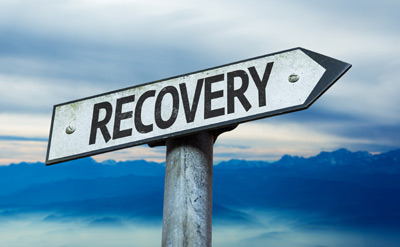 You don’t recover from an addiction by stopping using.
You recover by creating a new life where it is easier to not use.
If you don’t create a new life, Then all the factors that brought you to your addiction will eventually catch up with you again.
You don’t recover from an addiction by stopping using.
You recover by creating a new life where it is easier to not use.
If you don’t create a new life, Then all the factors that brought you to your addiction will eventually catch up with you again.Addiction Recovery and Addiction Counseling
 You don’t recover from an addiction by stopping using.
You recover by creating a new life where it is easier to not use.
If you don’t create a new life, Then all the factors that brought you to your addiction will eventually catch up with you again.
You don’t recover from an addiction by stopping using.
You recover by creating a new life where it is easier to not use.
If you don’t create a new life, Then all the factors that brought you to your addiction will eventually catch up with you again.



 Most sex education in this country comes from pornography. 90% of high school kids have sex before the end of high school and they learn most of what they know from porn.
What does Porn sex education teach?
Most sex education in this country comes from pornography. 90% of high school kids have sex before the end of high school and they learn most of what they know from porn.
What does Porn sex education teach?
 couples often use it together to enhance foreplay and increase arousal. It becomes a problem when one uses it significantly for the following reasons:
Interest and energy is fueled in relationships. The partners are the source of interest and energy. When porn becomes a part of the relationship, it moves the target from the partner to the porn. After watching much porn, one’s arousal template is high. This means it takes more to get the same effect. Therefore, you don’t look at your partner the same and it takes more effort to get aroused or reach orgasm. “You” are the source of what interest’s me, but porn can take that away by moving the target from partner to porn.
A good example of the above is illustrated in the movie “Don Juan”. He is a charming good looking man who easily has sexual encounters with most women he meets, yet is addicted to porn. He then meets a woman who discovers his secret and asks him why, when he can get any woman he wants, he is addicted. His explains that with porn, he can totally loose himself. He adds, “it’s convenient and because it’s easier”. It’s easily accessible, inexpensive, there is no dating, no having to please a demanding female, no dealing with relationship conflicts. For those with Erectile Dysfunction, no fear of displeasing a woman or having shame regarding performance.
All the above is reason to see why porn can be a threat to a relationship.
In addition, 52% of divorces site porn as an issue.
couples often use it together to enhance foreplay and increase arousal. It becomes a problem when one uses it significantly for the following reasons:
Interest and energy is fueled in relationships. The partners are the source of interest and energy. When porn becomes a part of the relationship, it moves the target from the partner to the porn. After watching much porn, one’s arousal template is high. This means it takes more to get the same effect. Therefore, you don’t look at your partner the same and it takes more effort to get aroused or reach orgasm. “You” are the source of what interest’s me, but porn can take that away by moving the target from partner to porn.
A good example of the above is illustrated in the movie “Don Juan”. He is a charming good looking man who easily has sexual encounters with most women he meets, yet is addicted to porn. He then meets a woman who discovers his secret and asks him why, when he can get any woman he wants, he is addicted. His explains that with porn, he can totally loose himself. He adds, “it’s convenient and because it’s easier”. It’s easily accessible, inexpensive, there is no dating, no having to please a demanding female, no dealing with relationship conflicts. For those with Erectile Dysfunction, no fear of displeasing a woman or having shame regarding performance.
All the above is reason to see why porn can be a threat to a relationship.
In addition, 52% of divorces site porn as an issue.
 The Guardian Weekly (British Newspaper) dated 11/29/13. Most psychiatrists agree that antidepressants work for people with severe illness but are not supposed to be the first resort for those with mild depression. The article supports the use of antidepressants but says that, “Experience broadly shows that while antidepressants can be effective at treating symptoms of depression, it is talking therapies that will help patients understand what is happening to them, and how to avoid relapse. The chances of a recurrence of depression are far higher in people who do not have some form of psychiatric therapy than for those who do”. We know that drugs do work, but they can’t cure unhappiness. This article supports medication for clinical depression, yet stresses the value of psychotherapy to help people deal with and manage frustration, adversity, sadness and situational dilemmas.
The Guardian Weekly (British Newspaper) dated 11/29/13. Most psychiatrists agree that antidepressants work for people with severe illness but are not supposed to be the first resort for those with mild depression. The article supports the use of antidepressants but says that, “Experience broadly shows that while antidepressants can be effective at treating symptoms of depression, it is talking therapies that will help patients understand what is happening to them, and how to avoid relapse. The chances of a recurrence of depression are far higher in people who do not have some form of psychiatric therapy than for those who do”. We know that drugs do work, but they can’t cure unhappiness. This article supports medication for clinical depression, yet stresses the value of psychotherapy to help people deal with and manage frustration, adversity, sadness and situational dilemmas.
 drink and drive as long as they are not drunk. Many of us have driven home after having one or two drinks (or more), and have not thought much about it. We are all aware that the legal blood alcohol level is .08. This means that anything over .08 means one is legally “drunk” and, if pulled over, would be given a DWI. To some, this means that if you get pulled over, and are asked to take a breathylyzer test and you are under .08, you would be OK and not arrested. THIS IS NOT TRUE.
If you have been drinking and score UNDER .08, you can still be arrested for “DUI” (drinking under the influence) and will be taken to jail. Even though “DUI” is “less” of a charge than “DWI”, you will still get arrested, go to jail, get your license taken away, have to get an attorney and have to appear in court later. That means that legally, we can’t drink and drive at all. Often these charges get “dismissed” the next day but even when they are, you still need to get an attorney and go through all the same financial burdens that you would if you get a DWI. The average amount spent on a DUI or DWI for a first offense, is, on average, about $8000.00. Again, this is even if the DUI is dismissed. Arrests are based on the fact that Texas is a “no tolerant” state. That means no drinking and driving at all.
A high percentage of DWI’s and DUI’s
drink and drive as long as they are not drunk. Many of us have driven home after having one or two drinks (or more), and have not thought much about it. We are all aware that the legal blood alcohol level is .08. This means that anything over .08 means one is legally “drunk” and, if pulled over, would be given a DWI. To some, this means that if you get pulled over, and are asked to take a breathylyzer test and you are under .08, you would be OK and not arrested. THIS IS NOT TRUE.
If you have been drinking and score UNDER .08, you can still be arrested for “DUI” (drinking under the influence) and will be taken to jail. Even though “DUI” is “less” of a charge than “DWI”, you will still get arrested, go to jail, get your license taken away, have to get an attorney and have to appear in court later. That means that legally, we can’t drink and drive at all. Often these charges get “dismissed” the next day but even when they are, you still need to get an attorney and go through all the same financial burdens that you would if you get a DWI. The average amount spent on a DUI or DWI for a first offense, is, on average, about $8000.00. Again, this is even if the DUI is dismissed. Arrests are based on the fact that Texas is a “no tolerant” state. That means no drinking and driving at all.
A high percentage of DWI’s and DUI’s are given between 10:30pm and 2:30am, Friday, Saturday and Sunday. People are initially pulled over for things like not using their signal when changing lanes, rolling through a stop sign, going through a yellow light, swerving while driving, driving with your lights off or making a turn from the wrong lane. Because alcohol is served at a great deal of social events in the evening, the police often find that many people who are pulled over for the above, have also been drinking. Therefore, it would be wise to drive carefully to avoid bringing unwanted attention to your driving.
I am writing this to give you awareness to a costly problem that can easily be prevented by not drinking and driving. The average cost includes bail, probation costs, attorney’s fees, car insurance fees, drug and alcohol assessment fees and random drug testing. There are better things we can do with our money and time. So, please share this information with a friend and consider a designated driver or taxi when going out and drinking. The cost and inconvenience of a taxi or designated driver is far less than the cost and inconvenience of an arrest. Enjoy your partying by taking steps to prevent a DWI!
are given between 10:30pm and 2:30am, Friday, Saturday and Sunday. People are initially pulled over for things like not using their signal when changing lanes, rolling through a stop sign, going through a yellow light, swerving while driving, driving with your lights off or making a turn from the wrong lane. Because alcohol is served at a great deal of social events in the evening, the police often find that many people who are pulled over for the above, have also been drinking. Therefore, it would be wise to drive carefully to avoid bringing unwanted attention to your driving.
I am writing this to give you awareness to a costly problem that can easily be prevented by not drinking and driving. The average cost includes bail, probation costs, attorney’s fees, car insurance fees, drug and alcohol assessment fees and random drug testing. There are better things we can do with our money and time. So, please share this information with a friend and consider a designated driver or taxi when going out and drinking. The cost and inconvenience of a taxi or designated driver is far less than the cost and inconvenience of an arrest. Enjoy your partying by taking steps to prevent a DWI!